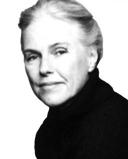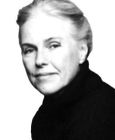All through my working life I have been helped by generous people. I began writing at an early age but was soon side-tracked by life: marriage, a wayward husband, three babies, one of them severely deaf kept me preoccupied by other matters, but at the back of my mind there was always the desire to write. I read as much as I could, told stories to little groups of children on the beach, took occasional writing courses, studied psychology until my children were old enough to stand on their own feet.
Then I went back to school (Columbia) and soon found an editor at Knopf, Gordon Lish. So much has been written about this legendary editor who has been called all sorts of things including the Magus of Minimalism. I can only say here that I learned a lot from him. He was a generous teacher who sat for six hours once a week, sharing with his students what he knew about writing. He published three of my first books with Knopf. For my first novel, “The Perfect Place,” I wanted to write out of rage about the death of my sister, and he made me understand that a victim on the page does not work as she does not work in life. It was a valuable lesson.
When the book was finished I was lucky enough to find generous readers willing to give me public praise. I remember the thrill of getting a comment from John Coetzee, my fellow countryman, a wonderful writer ("Disgrace") who eventually won the Nobel Prize. D.M. Thomas ("The White Hotel") also read and praised in a blurb. What generosity from these famous writers to reach out to an unknown South African woman, and to strike up what became in the case of John Coetzee the beginning of a correspondence filled with words of encouragement which sustained me through the many vicissitudes of the writing life.
I went on to write many books and along the way I found others who were willing to help and advise. Raymond Smith and Joyce Carol Oates published and edited two of my books. In the novel, “Crossways” I was able to come closer to the material I had wanted to mine in my first novel, though here, too, I placed the voice of the perpetrator side by side with the angry sister and an ancient Zulu.
Over the years, countless friends reached out to me, reading my work, praising, and critiquing, and here I must include a devoted husband. Others found me teaching jobs which sustained me when I needed them. Edmund White has helped, I know, innumerable writers with his generous friendship radiating goodness around him.
Writers helping writers is a splendid sight indeed. Recently I attended a “Happier Hour” where Aidan Donnelley opens up her beautiful home for writers to congregate and enjoy conversation and also to sell their books.
Of course, not everyone has been similarly generous. There are those friends who disappear so mysteriously and whose friendship one misses over the years. Why did they turn their backs? What was it that made them turn away?
But surely these numerous examples of generosity can only spur us on to try to help others who are in need of encouragement and praise. Giving to others enriches us, creates a community, and preserves literature for future generations.
Sheila Kohler is the author of many books including the recent Dreaming for Freud.


